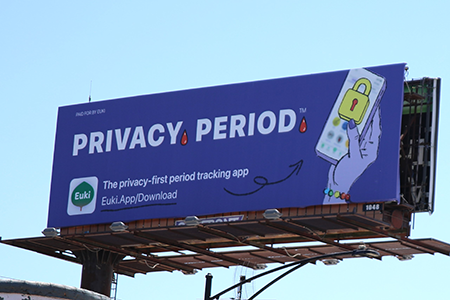
Do You Need a Permit for Billboard Advertising? (And How it Works by State)
Billboard advertising is one of the most effective ways to reach audiences in the real world. These out-of-home (OOH) formats offer constant visibility and extended reach. One important thing to consider before launching your campaign is: Do you need a permit for billboard advertising?
The short answer is yes. Most outdoor ads require permits, and the variance happens when comparing the rules and guidelines from state to state. There are countless nuances and permit processes to understand in order to stay state compliant and avoid fines.
Let’s break it down so you don’t have to!
What Are Billboard Permits For?
Billboard permits exist in order to ensure that outdoor ads are compliant with federal, state, and local regulations.
These rules and guidelines are here to:
- Ensure road safety and proper driver visibility issues
- Preserve natural landscapes
- Establish structural and electrical safety for the signs
- Prevent noisy visual clutter in high-traffic locations
Understanding this system allows you to avoid illegal placements that risk fines, ensure your media partners have a compliant inventory, and allows you to manage campaign planning around states with stricter billboard laws.
How Billboard Permits Impact Advertisers
As an advertiser, you won’t need to worry about applying for billboard permits, but billboard regulations can still influence:
- Location availability: Some areas, like scenic locations or residential zones, prohibit new billboard installations entirely.
- Timing: Permitting limits may affect how quickly campaigns can go live.
- Creative restrictions: Local and state laws may restrict certain types of content and even motion on digital billboards.
By knowing the basics, advertisers can aptly plan campaigns that go off without a hiccup, ensuring both legal compliance and effective audience reach.
How Billboard Permits Work by State
While all states have to follow federal guidelines, the permitting processes can differ by state.
Below are examples of how three states handle OOH permits:
California
California has some of the strictest billboard regulations in the United States and is managed by the California Department of Transportation (Caltrans). Caltrans limits new billboard construction and controls digital ad brightness and timing.
New Jersey
New Jersey allows billboards only in commercial and industrial zones, requiring NJDOT oversight for annual renewals and maintenance of licensed operators.
Florida
Florida has a booming and active billboard market, with FDOT enforcing spacing, lighting, and even digital dwell-time.
The Takeaway
For advertisers, the takeaway is simple: work with licensed operators who understand local permitting like BillboardsIn, especially when choosing to place ads in high-demand and active states.

